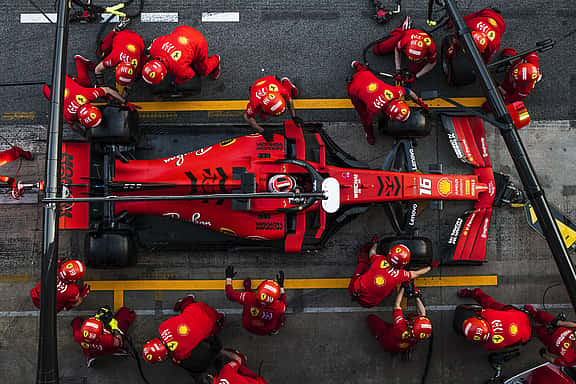Blink and you’ll miss it. That is very much the case with pit stops in Formula 1. They are lightning quick, every tenth counts, so the pressure is on. With pit stops recorded of 1.88seconds, all within a confined space, one mistake could be the difference between win or lose, life or death.
So what can we learn from the synchronized moves, mapping and the Kaizen ethos of these incredible teams:
// TRUST
Imagine an F1 car driving at a speed no less than 70km/h hurtling towards you. The team place their trust in their driver’s skills and exercise of control, even under extreme pressure to bring the car to a stop, without running them over. Without trust, maximum productivity cannot be reach. Tensions, atmospheres lend to less collaboration, impacted operational processes and inconsistencies.
// NO I IN TEAM
The Driver may seem to get the accolades, glory and applause, but his success relies entirely on his teams synergy. Sound familiar? A Project Manager cannot succeed without a reliable, effective team. Leadership skills can help steer the contributions of the team into accomplishing the project goals.
// PREPARATION IS CRUCIAL
Every person in a pit stop has a role to play. One depends on the other, how do they achieve this harmonic dynamic. Training, training, repetition, coordination. Every member of a business needs to understand their role to play, and how they effect others. With continual training and coordination, those harmonies will align.
// TROUBLESHOOT
Streamlining, prioritizing, limit your focus so you can increase your speed and reach your goals. F1 engineers focus on one task, ignoring the overpowering urge to be distracted by noise or distractions. Each individual should focus on the immediate needs, limit distractions and set targets to accomplish any project effectively.
// KNOW YOUR CUSTOMER
Work doesn’t start at the Pit Stop, it starts with design. Both contributing to propelling the success of the driver. Anticipate concerns and map out possible solutions, ensure the car offers the driver confidence to take corners hard and put pedal to the metal. In the same respect, businesses should be anticipating the needs of their customer and offering products that offer solutions.
Whatever the industry, the environment, the product, success depends on the team, not the company. Challenges can be overcome, not by a sole leader but synchronized team efforts. Each employee has a unique skill that the team needs. With enough preparation, trust, and open communication, the business can reach whatever goal it wants to achieve.


